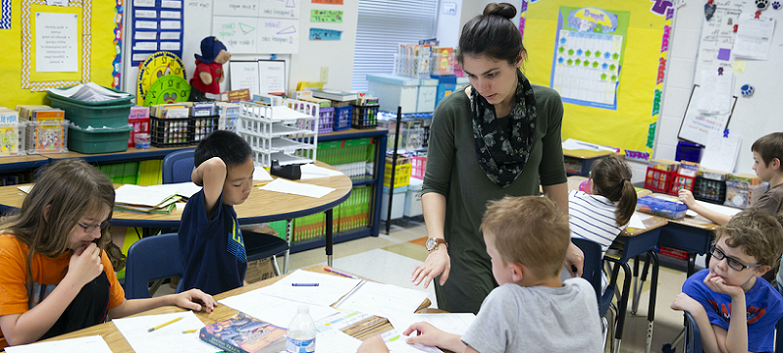
As parents, we all want our children to succeed and thrive in life. However, sometimes our efforts to support our kids can unintentionally send the message that their abilities and potential are fixed. Developing a growth mindset in our children can help them to approach challenges with confidence, embrace learning and growth, and reach their full potential.
What Is Growth Mindset?
Growth mindset is a term coined by psychologist Carol Dweck to describe the belief that our abilities and intelligence can be developed through hard work, dedication, and learning. People with a growth mindset believe that their potential is not predetermined and that they can improve and grow through effort and perseverance.
They embrace challenges, view mistakes as opportunities for learning, and are inspired by the success of others. They see failure as a temporary setback and use it as a chance to learn and improve. In contrast, people with a fixed mindset believe that their abilities are innate, and that they cannot change them. They tend to avoid challenges, give up easily when faced with obstacles, and see failure as evidence of their limitations.
The concept of growth mindset has gained popularity in recent years, especially in the context of education, as it has been linked to improved academic achievement, increased motivation, and greater resilience. By cultivating a growth mindset in ourselves and our children, we can approach life with a more positive and growth-oriented mindset, and be better equipped to face challenges and succeed in our goals.

Understanding Growth Mindset
Understanding growth mindset involves recognizing its characteristics and developing the right mindset. People with a growth mindset believe that their intelligence and abilities can be developed through hard work and dedication. They view challenges as opportunities for growth and embrace the process of learning.
They also understand that mistakes are a natural part of the learning process and that they can use them to improve. Those with a growth mindset tend to be more resilient and have a greater sense of purpose and self-belief. On the other hand, individuals with a fixed mindset tend to believe that their intelligence and abilities are predetermined, and they avoid challenges and see failure as evidence of their limitations.
To develop a growth mindset, it is important to focus on effort and growth, rather than innate ability. This means praising effort and persistence, and encouraging children to take on challenges and learn from mistakes. It also involves modeling the right mindset and being mindful of our own beliefs and attitudes towards intelligence and achievement.
By cultivating a growth mindset, we can approach life with greater resilience, self-belief, and a willingness to take on challenges and learn from them.

Teaching Growth Mindset to Your Children
Teaching growth mindset to children involves several key strategies. First, it is important to praise effort and persistence rather than innate ability or intelligence. This helps children to see that their achievements are a result of their hard work and dedication, rather than their natural talent.
Secondly, it is important to encourage children to take on challenges and learn from their mistakes. This can be done by providing opportunities for children to try new things and take risks, and by helping them to reflect on what they have learned from their experiences.
Thirdly, modeling a growth mindset is essential. Children learn from their parents and teachers, so it is important to model the right mindset by embracing challenges, learning from mistakes, and focusing on growth and progress rather than just achievement.
Fourthly, discussing the brain’s ability to change and learn can help children to understand that their abilities are not fixed, and that they can improve through effort and practice.
Lastly, teaching children to embrace mistakes and use them as opportunities to learn is crucial. This can be done by reframing mistakes as part of the learning process and helping children to reflect on what they have learned from them.

Tools for Developing Growth Mindset
There are several tools and resources that can be used to develop a growth mindset. First, books and resources can help children to understand the concept of growth mindset and its importance. These resources can provide examples of individuals who have embraced a growth mindset, and offer tips and strategies for developing this mindset.
Second, growth mindset activities and games can make the learning process more fun and engaging for children. These can include puzzles, brain teasers, and other games that encourage children to think critically and solve problems.
Third, mindfulness exercises can help to cultivate a growth mindset by promoting self-awareness and resilience. Mindfulness exercises can include practices such as meditation, deep breathing, and yoga.
Finally, using positive affirmations and self-talk can help to reinforce a growth mindset by focusing on effort, progress, and learning.
Benefits of Developing Growth Mindset
Developing a growth mindset has several benefits for children. First, it can increase their resilience and help them to bounce back from setbacks more easily. Children with a growth mindset tend to view challenges as opportunities for growth and are more willing to take on new challenges.
Second, developing a growth mindset can improve children’s self-esteem and self-confidence. When children see that their efforts lead to progress and success, they are more likely to believe in their abilities and have a positive self-image.
Third, having a growth mindset can lead to increased motivation to learn and grow. When children understand that their intelligence and abilities can be developed through hard work and dedication, they are more likely to embrace the learning process and be motivated to improve.
Finally, a growth mindset can help children to reach their full potential by allowing them to approach challenges with confidence and perseverance.
Challenges to Encouraging Growth Mindset in Children
While encouraging growth mindset in children can be beneficial, there are several challenges that can arise. First, some parents or teachers may hold fixed mindset beliefs themselves, which can make it difficult to model a growth mindset for children.
Second, children may resist the idea of a growth mindset, especially if they have been praised for their intelligence or natural ability in the past.
Third, social and cultural influences can also play a role. Some cultures may place more emphasis on natural talent or intelligence, rather than hard work and effort.
Finally, some children may have learning disabilities or other challenges that make it difficult to embrace a growth mindset. In order to overcome these challenges, it is important to provide consistent support and encouragement, model the right mindset, and provide opportunities for children to experience success through effort and hard work.
